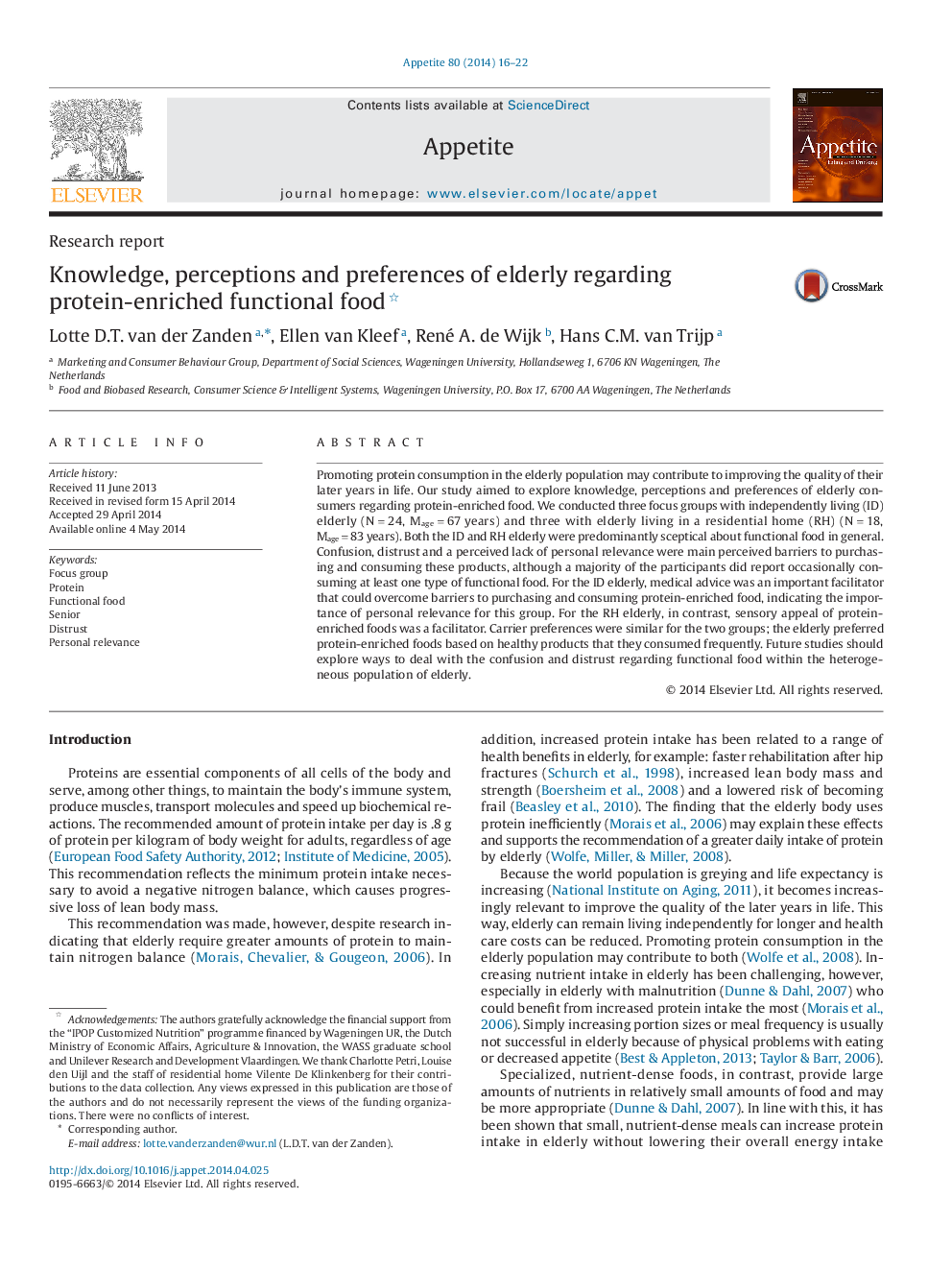| Article ID | Journal | Published Year | Pages | File Type |
|---|---|---|---|---|
| 939408 | Appetite | 2014 | 7 Pages |
•Proteins, enriched food and protein-enriched food are discussed in six focus groups.•Participants are elderly living either independently or in a residential home.•Confusion, distrust and personal relevance are barriers to accepting enriched food.•Medical advice and sensory appeal are motivators that can help overcome barriers.•Elderly prefer healthy products in their current diet as carriers for protein.
Promoting protein consumption in the elderly population may contribute to improving the quality of their later years in life. Our study aimed to explore knowledge, perceptions and preferences of elderly consumers regarding protein-enriched food. We conducted three focus groups with independently living (ID) elderly (N = 24, Mage = 67 years) and three with elderly living in a residential home (RH) (N = 18, Mage = 83 years). Both the ID and RH elderly were predominantly sceptical about functional food in general. Confusion, distrust and a perceived lack of personal relevance were main perceived barriers to purchasing and consuming these products, although a majority of the participants did report occasionally consuming at least one type of functional food. For the ID elderly, medical advice was an important facilitator that could overcome barriers to purchasing and consuming protein-enriched food, indicating the importance of personal relevance for this group. For the RH elderly, in contrast, sensory appeal of protein-enriched foods was a facilitator. Carrier preferences were similar for the two groups; the elderly preferred protein-enriched foods based on healthy products that they consumed frequently. Future studies should explore ways to deal with the confusion and distrust regarding functional food within the heterogeneous population of elderly.
